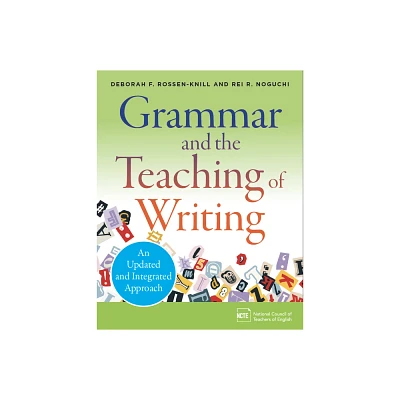Home
Situating Writing Processes: Physicality, Improvisation, and the Teaching of Writing
Loading Inventory...
Barnes and Noble
Situating Writing Processes: Physicality, Improvisation, and the Teaching of Writing
Current price: $24.00


Barnes and Noble
Situating Writing Processes: Physicality, Improvisation, and the Teaching of Writing
Current price: $24.00
Loading Inventory...
Size: OS
*Product Information may vary - to confirm product availability, pricing, and additional information please contact Barnes and Noble
What should it mean today to "teach writing as a process"? In
Situating Writing Processes
, Hannah J. Rule takes stock of this familiar commonplace in composition studies, arguing for a renewed understanding of process that emphasizes situatedness. To situate processes is to
physically locate
them: to observe the infinite ways they are shaped by particular bodies and affects, environments and spaces, others near and distant, and various tools or objects. When we call attention to the physical, material, and located dimensions of processes, we foreground the differences, contingencies, and lived experiences of composing. Doing so is critical, Rule argues, to finally letting go of discrete skills and instead teaching writing as experience in seeing and responding to ranging constraints immediate and distant, material and social. Situating processes ultimately emphasizes vulnerability: how all writing involves risk, uncertainty, and the possibility of failure, as processes are susceptible to the participation and control of forces on ranging scales and always in excess of the writer alone. Accounting for context, difference, and improvisation,
helps writing teachers and scholars freshly reimagine the histories and potential of an enduring concept.
Situating Writing Processes
, Hannah J. Rule takes stock of this familiar commonplace in composition studies, arguing for a renewed understanding of process that emphasizes situatedness. To situate processes is to
physically locate
them: to observe the infinite ways they are shaped by particular bodies and affects, environments and spaces, others near and distant, and various tools or objects. When we call attention to the physical, material, and located dimensions of processes, we foreground the differences, contingencies, and lived experiences of composing. Doing so is critical, Rule argues, to finally letting go of discrete skills and instead teaching writing as experience in seeing and responding to ranging constraints immediate and distant, material and social. Situating processes ultimately emphasizes vulnerability: how all writing involves risk, uncertainty, and the possibility of failure, as processes are susceptible to the participation and control of forces on ranging scales and always in excess of the writer alone. Accounting for context, difference, and improvisation,
helps writing teachers and scholars freshly reimagine the histories and potential of an enduring concept.


















